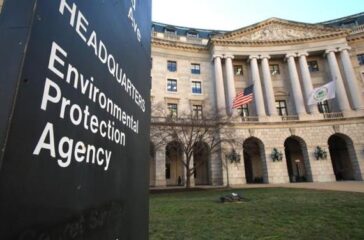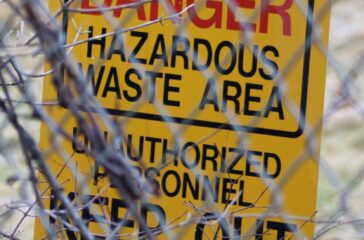Concerned about developing babies, EPA warns about danger of weed killer used on farms, golf courses
By Johnathan Hettinger
The US Environmental Protection Agency (EPA) on Monday took the rare step of issuing a warning about “serious, permanent, and irreversible health risks” associated with a chemical used to kill weeds on farms and golf courses and athletic fields.
Citing “significant health risks to pregnant individuals and their developing babies,” the agency said farmworkers and others handling dimethyl tetrachloroterephthalate, more commonly known as DCPA, were at risk, as are people who might play on courses or fields recently sprayed with the pesticide.
The most serious risks extend to the developing babies of pregnant women, especially those handling DCPA products. The agency said pregnant women exposed to DCPA could experience changes to fetal thyroid hormone levels, which are linked to low birth weight, impaired brain development, decreased IQ, and impaired motor skills later in life. Though product labels say people should stay out of fields for 12 hours after they are sprayed with DCPA, the EPA said evidence indicates that in many cases, sprayed fields would be unsafe for 25 days or more. The agency additionally said that mothers and their developing babies could be at risk if they live near areas where DCPA is used because the pesticide can drift.
“EPA has determined that currently registered products containing the herbicide DCPA likely cannot be used under current label directions without posing serious risks of concern in humans,” Ed Messina, director of the Office of Pesticide Programs, stated in a letter to AMVAC, a California-based company that is the sole manufacturer of the pesticide.
The product is primarily used to control weeds on crops such as broccoli, Brussels sprouts, cabbage and onions, though it is also used in some non-agricultural settings. Last year, AMVAC agreed to end its use on turf, citing health concerns.
The EPA is currently reviewing whether to reapprove DCPA. Though the agency rarely takes the step of canceling a pesticide, it is considering that route, including suspending DCPA during review process, the agency said.
“Due to the serious potential risks posed by DCPA use, EPA will be pursuing these regulatory options as soon as practicable,” Messina wrote in the communication to AMVAC.
 EWG
EWG








